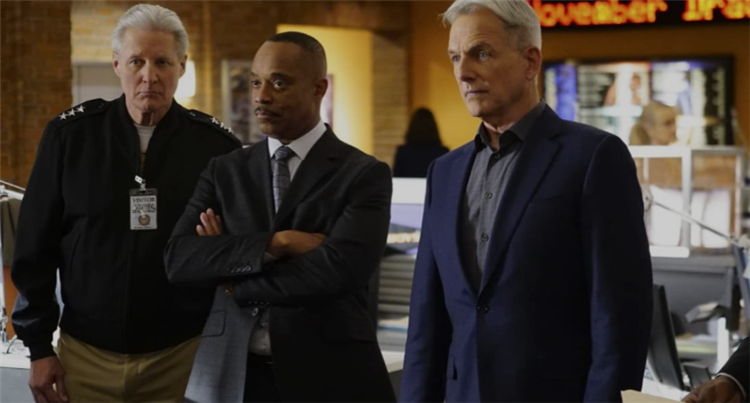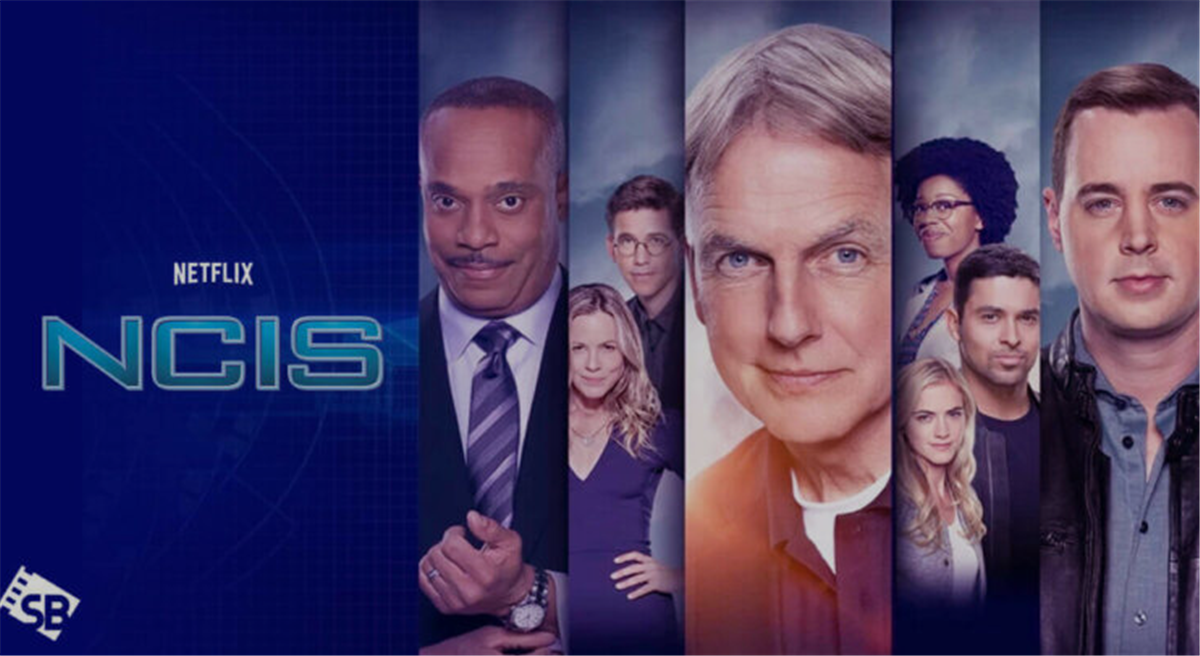If any of this is real, we’re all in big trouble.
Thanks in large part to the NCIS franchise, CBS has made the claim that it is the “most watched network” in America into a catchphrase. The original NCIS was the most watched primetime scripted series of the 2021–2022 season, continuing to chart well after over 20 years. NCIS: Los Angeles, NCIS: New Orleans, NCIS: Hawaii, and the impending NCIS: Sydney are all spin-offs from JAG. Although the majority of viewers undoubtedly don’t watch NCIS for realism, making assumptions about why people watch is pointless and might not even be indicative of the work’s potential irresponsibility. NCIS is extremely wrong, and in a time when people are more sensitive to how law enforcement is portrayed in popular entertainment, accuracy matters when that entertainment is the most well-liked.
Take, for instance, Season 3, Episode 5 of NCIS: Los Angeles, where the team investigates the risk factors for sexual assault on Navy ships, culminating in a scene where Callen (Chris O’Donnell) dresses down a commander for fostering a dangerous environment for his sailors. Not a single gun is fired. Of course, in the actual Season 3, Episode 5 of NCIS: Los Angeles, the team investigates the link between al-Qaeda and a Mexican drug cartel, culminating in a shootout with corrupt CIA agents! There’s so much to unpack there; “corruption” doesn’t begin to describe the charter of a clandestine intelligence agency, and it’s highly unlikely that any Mexican drug cartel would align itself with al-Qaeda, given differences in group identity and ideology. Both of these plot points feel ripped from the pages of Tom Clancy, tapping into a popular understanding of things we find scary. More pressingly, why would NCIS even be involved in the first place?
What Does the Real NCIS Do?

“NCIS is the investigative entity within the Department of the Navy (DON) responsible for major criminal investigations involving Navy and USMC equities, service members, and affiliated civilian personnel,” according to the official government website. “Routinarily investigating the crimes of homicide, rape, sexual assault, child physical and sexual abuse, burglary and robbery, larceny of government and personal property, and aggravated assault.” Cybersecurity, economic crimes, and counterterrorism are some other key mission areas. When it comes to the Navy and Marine Corps (USMC), NCIS has exclusive jurisdiction over these matters. Despite that there are field offices all over the world, including Italy, Japan, and Singapore, with hundreds more subordinate offices – all suggesting future installments in the franchise – NCIS is a relatively small agency, whose actual New Orleans office is staffed by only two special agents.
On TV, NCIS has to compete with those larger agencies head-on to capture the excitement of, say, FBI, Homeland, or Narcos. The fast track to those shows’ gunfights and explosions is one particular core mission area: homicide. Most episodes begin with a murder and end in the arrest of a suspect, who usually confesses. With NCIS: New Orleans having been canceled in 2021, and each NCIS season running at a maximum of 24 episodes, the 2022-2023 TV season will broadcast 96 NCIS episodes, almost twice as many weeks in a year. Does the real NCIS investigate (and solve) 96 homicides a year? No; according to the Department of the Navy, in 2020, there were 11 Navy and 7 USMC homicide deaths. The writers have to effectively invent 80 crimes for the teams to solve. As a report by Color of Change Hollywood notes, “while the crime rate has dropped dramatically over the last 20 years, the number of people who say crime is going up is steadily increasing.” Is this the reason why? Well, that’s our futile exercise.
‘NCIS’ Doesn’t Portray Every Aspect of the Real Agency
The action may be an exaggeration, but there is a kernel of truth, to put it lightly. In 2013, NCIS agents exchanged gunfire with a mass shooter in Washington D.C., and in September of last year, an agent was wounded in a shootout with a suspect in Harris County, Texas. However, these events are only one part of an agent’s everyday experience, and the NCIS shows don’t appear interested in the other parts. As one of the two New Orleans special agents notes, “For every real hour of work I do, I spend seven hours writing about it.” There is no paperwork on NCIS. We want to see people doing things, and luckily, the lead characters of the four shows so far are field agents, not the medical examiners or forensics guys (which NCIS doesn’t actually have). In NCIS: New Orleans, the lab geek Sebastian Lund (Rob Kerkovich) wanted to become a field agent – which, as it turns out, NCIS doesn’t really have, either. Naturally, a star like LL Cool J is gonna get his hands into every step of the investigation, from victimology and surveillance to the door kicking and arrest. However, NCIS has always had local police execute dangerous take-downs and searches, until the creation of REACT, an NCIS tactical unit, in response to the mass shooting incident.
Having every agent do every job may be inefficient management, but it’s consistent with the shows’ instinct for simplicity. Where murders are caught and solved within the span of an episode, real-world investigations can take months, even years. The investigation into the high-profile murder of Navy officer Corey Voss took five months. Even if it took “a lot of twists and turns,” as NCIS agents put it in TV terminology, it still doesn’t correspond to the typical NCIS episode. The actual work—which involves phone calls, phone records, maps, wiring, and pattern recognition—is more akin to a puzzle and is actually pretty fascinating. On television, language is used frequently to convey information, whether it comes from suspects being questioned in a box or from agents swooping in to summarize their off-screen investigation. This police drama’s top priorities have nothing to do with procedure.
What Cases Would ‘NCIS’ Pursue If the Show Were More Accurate?

Process-heavy shows like Mindhunter and We Own This City certainly never returned CBS numbers. Like paperwork, procedure is boring, which further suggests why other areas of the NCIS mission aren’t dramatized on the shows. Cyber gets a nod every now and again when a system out there needs a good hacking, but what about “economic crimes”? Well, as Lester Freamon once said, “You start to follow the money, and you don’t know where the fuck it’s gonna take you.” As was true for The Wire, investigations beyond murders begin to expose cracks in the system. Fraud cases might implicate politicians or businessmen, and not the cartoon kind who specifically dislike those middling NCIS agents for whatever reason. The largest fraud case in Navy history involved an NCIS supervisory agent, later sentenced to 12 years in prison.
If economic crime is off the table, then what about sexual assault, the DON’s second most frequent crime behind narcotics? Among all branches of the military, the risk of sexual assault is highest aboard Navy ships. A Department of Defense briefing showed that 12% of male sailors and 28% of female sailors reported sexual assault, and one in three women report retaliation after coming forward. This is, of course, an epidemic failure of an American institution, but the NCIS franchise isn’t interested in criticizing the military. In 2017, cast members including Sean Murray and Wilmer Valderrama were invited to tour a Marine Corps base, and NCIS has always had real agents on staff as technical advisors, like the late D’Wayne Swear, who inspired Scott Bakula’s character Dwayne Pride.
‘NCIS’s Hit Formula Won’t Be Changing Any Time Soon
In the very first paragraph of an assessment summarizing a 2021 RAND report on sexual assault in the U.S. military, the authors used pointed words that ought to be delivered directly to CBS: “To reduce rates of sexual assault and sexual harassment – and not just respond to them – efforts should focus on the current state of prevention for these problem behaviors within the services.” (Emphasis added). None of the preventative methods discussed in the report have ever been portrayed on NCIS. How are they possible? The show was abruptly ended after the mayor of NCIS: New Orleans hired a think group to study police reform. The writers only addressed systemic failure when there was nothing to lose, which was probably owing to a fall in ratings.
Ultimately, the inaccuracy of NCIS begins with its disproportionate focus on homicide, which leads to a disproportionate depiction of murders solved. In NCIS, as with the rest of the CBS catalog at least, the police are unambiguously heroic, a characterization that was once only stale but increasingly feels belligerent in the face of activist objection. The issue with NCIS is the issue with American police procedurals in general—a neurotic urge to mythologize justice rather than talking about crime prevention. Are we uninterested in the wider factors that contribute to crime because they are impossible to capture or kill? The job of the ACLU or the RAND Corporation, or even NCIS, isn’t dramatic enough for television. The massive cartel/al-Qaeda plot we’ve all been reading about must be dismantled if the real agents hope to impress us.
